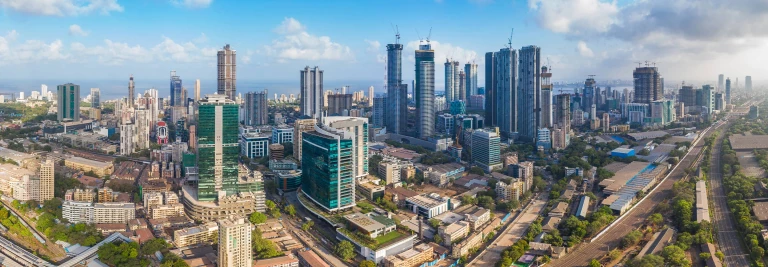In 2024, caution has been the prevailing theme for many dealmakers worldwide. Although the market has recovered from its late-2023 lows, a strong resurgence in M&A activity has yet to materialize as companies navigate complex political and macroeconomic landscapes.
BCG’s M&A Sentiment Index suggests that there will be greater dealmaking activity for the remainder of the year. The index continues to climb slowly but steadily, particularly in North America and Europe. However, global deal volume will probably still be below the long-term average.
To better understand the regional dynamics at work, BCG asked experts in seven regions to describe the current state of their M&A markets and share insights on the near-term drivers of deal activity. Here are their perspectives:

The Africa Perspective

Dealmaking in Africa has stabilized in 2024, ending the downward trend that followed the post-pandemic peak in 2021. Larger-than-usual deals are the primary drivers of this stabilization, even as deal volume remains significantly below historical levels.
During the first nine months of 2024, the total value of deals in Africa rose by 36% compared with the same period in 2023, outpacing the global increase of 10%. However, the number of deals on the continent held steady year over year, compared with the global reduction of 13%. Together, these figures point to a significant rise this year in the average deal size across Africa.
Within the broader trend toward stabilization, several sectors have witnessed significant transactions:
- Media. One of the most notable deals in the region this year was the $1.8 billion bid by Canal+, a French media group, to acquire South African TV broadcaster MultiChoice Group.
- Energy. Energy deals continue to be a cornerstone of African M&A. Standout deals in 2024 include Renaissance’s $2.4 billion acquisition of Shell Petroleum Development Nigeria and Carlyle’s $820 million buyout of Energean’s Egyptian and Mediterranean assets. Carlyle’s acquisition is part of a broader strategy to build an integrated gas exploration and production company in the region.
- Materials. The materials sector remains active, with larger deals focused on gold mining. For instance, Gold Fields acquired Osisko Mining for $1.3 billion. One notable non-mining deal is Savannah Clinker’s bid for Kenya-based Bamburi Cement for $150 million.
So far in 2024, South Africa has recorded the continent’s highest deal value (a total of $3.5 billion), primarily attributable to Canal+’s acquisition of Multichoice Group. Nigeria follows closely at $3.4 billion and Egypt ranks third at $913 million. In terms of transaction volume, South Africa leads with 118 deals, well ahead of Morocco (28), Nigeria (25), Egypt (22), and Kenya (18). South Africa was also the continent’s most active market in 2023, followed by Egypt.
Private capital has played a significant role in African dealmaking throughout 2024. Carlyle’s acquisition in the energy sector, noted above, could be a sign that big private equity firms are interested in reentering the African market. In addition, Hennessy Capital’s $530 million bid for Zimbabwean Namib Materials highlights how the African market is increasingly attracting international private capital.
Looking ahead,
BCG’s M&A Sentiment Index
indicates stable sentiment among dealmakers globally. In Africa, several key factors will shape the prospects for M&A:
- Securing Materials for Sustainable Technologies. Demand is increasing for rare-earth elements and other materials that play a central role in the global shift toward sustainable technologies. As a result, we expect to see an increase in dealmaking that focuses on securing access to these vital resources throughout Africa.
- Rising Interest from Non-African and Financial Players. Non-African buyers or financial investors are executing a growing number of deals that involve African targets. Currently, inbound deals account for well over half of all transactions—a sharp increase from several years ago when most deals were between regional players. In part. this trend reflects the increasing presence of Chinese buyers on the continent. At the same time, financial sponsors, including private equity firms and sovereign wealth funds, are showing heightened interest in African opportunities.
- Increasing Activity in South Africa. Dealmaking in South Africa is set to accelerate, buoyed by optimism about the country’s macroeconomic outlook following recent election results. This positive sentiment is attracting both local firms with available cash and international investors. In addition, the potential for lower interest rates and favorable valuations—especially for distressed companies in need of capital—is further drawing investors to the country.
- Rapidly Developing African Economies. As the region’s economies continue to grow, local companies will use strategic deals to close gaps in their value chains and capabilities. For example, companies must strengthen local infrastructure and logistic networks to keep pace with consumers’ rising purchasing power and evolving demands. And competition for technological assets and talent may drive further M&A.
- Increasing Risk of Slowing Growth. Slower-than-anticipated global economic growth is tempering regional enthusiasm for M&A. Consequently, companies may adopt a more cautious stance, choosing to observe market conditions carefully before committing to significant transactions.
We expect these factors to provide continued support for M&A activity in Africa and to attract increased interest from foreign investors. Even so, the dealmaking landscape is likely to remain volatile, driven by sporadic large deals and concentrated activity in the continent’s more advanced economies.
The author is grateful to Daniel Kim of BCG’s Transaction Center for his valuable insights and support in the preparation of this article.

The Germany Perspective
German M&A activity has been sluggish in 2024, continuing a prolonged slowdown that began in the latter half of 2022. The early signs of a dealmaking recovery that have appeared globally and in the rest of Europe are just beginning to become noticeable in the continent’s largest economy.
During the first nine months of 2024, German deal value was 52% lower than during the same period in 2023. In contrast, deal value increased by 10% globally and by 14% in Europe overall. The number of deals in Germany declined by 19%, versus 13% globally and 15% in Europe overall. As a result, M&A activity in Germany continues to trail its long-term averages.
Despite the prevailing sluggishness, dealmaking in Germany’s industrial, financial, and energy sectors has been relatively robust in 2024, particularly for larger transactions:
- Industrial. Industrial companies have been central to Germany’s dealmaking activity in 2024. One highlight is Bosch’s $8.1 billion acquisition of a residential and light commercial HVAC business jointly owned by Johnson Controls and Hitachi. That purchase represents Bosch's largest deal to date. Another notable transaction is Knorr-Bremse's $700 million acquisition of Alstom’s North American rail signaling business.
- Financials. Rising interest rates have spurred M&A activity in Germany’s financial sector. Key deals include ABN Amro’s $700 million acquisition of private bank Hauck Aufhäuser Lampe, and Allianz’s $1.8 billion sale of its US middle-market commercial lines and entertainment insurance businesses to Arch Insurance North America.
- Energy. The ongoing energy transition continues to spur deals involving green energy sources in Germany. A standout transaction is the $3.1 billion acquisition of renewables company Encavis by a consortium led by KKR and Viessmann, a heating and energy solutions provider.
Private equity firms have executed several high-profile deals in Germany. A notable transaction is KPS Capital Partners' $3.8 billion acquisition of Innomotics, a carve-out from Siemens. Elsewhere, CDPQ and TPG Capital joined forces to purchase Aareon from Aareal Bank and Advent International for $4.2 billion.
Looking ahead, BCG’s M&A Sentiment Index for Europe indicates stable sentiment among dealmakers in the region, as decreasing interest rates are offset by a more cautious economic outlook.
Dealmakers in the European Union are navigating a challenging regulatory environment, marked by recent interventions in the areas of antitrust and foreign investment. These challenges are evident in the increasing time required to close deals. A BCG study found that the average closing time for EU-based deals was 234 days in 2022—a 54% increase since 2018. For deals exceeding $10 billion in value, closing times rose by 22% during the period from 2018 through 2022, averaging 279 days—2.5 months longer than the average for all deals.
Amid persistent market volatility and macroeconomic and geopolitical uncertainty, we see several catalysts for M&A activity in Germany:
- Energy Transition. The ongoing need to invest in European energy independence and the shift to renewable energy will influence various sectors and continue to shape dealmaking.
- Automotive Transition. The automotive industry's shift to new technologies will necessitate dealmaking and other forms of collaboration within and outside the industry. A notable example is Volkswagen's recent investment to form a joint venture with EV maker Rivian Automotive.
- Digital Competencies. Companies will pursue deals to acquire digital and technological competencies, particularly in response to the rising importance of GenAI-driven innovations. An example is SAP's $1.4 billion acquisition of WalkMe, a business-transformation software company.
The bottom line: despite short-term challenges, M&A activity in Germany is showing the first signs of cautious recovery, as companies utilize M&A to adapt to new business models and technological demands.
The author is grateful to Daniel Kim of BCG’s Transaction Center for his valuable insights and support in the preparation of this article.

The India Perspective
M&A activity in India has been strong in 2024, bucking the trend in other Asia-Pacific markets. This robust performance marks a reversal of the sharp decline in deal-making that the country experienced from mid-2022 through 2023.
In the first nine months of 2024, Indian deal value surged by 66% compared with the same period in 2023, supported by large deals. In comparison, deal value rose by only 10% globally and declined by 5% in the Asia-Pacific region overall. Deal volume in India declined by 3%, but not as sharply as it did globally (13%) or in the Asia-Pacific region as a whole (13%).
Activity involving large deals in India was led by several sectors:
- TMT. Targets focused on technology, media, or telecommunications accounted for 40% of the total deal value during the first nine months of 2024. In one of the largest media deals, Viacom 18 Media agreed to merge with Star India, a provider of subscription programming services. Star India was owned by 21st Century Fox, which is controlled by Disney. The deal, now approved by regulators, is valued at $3.1 billion. In the technology sector, Nidar Infrastructure, a provider of data processing and hosting services, went public by reverse-merging with Cartica Acquisition Corp. The deal is valued at $2.8 billion.
- Industrials. Despite cautious global sentiment, industrial companies continue to lead Indian dealmaking in 2024. A noteworthy example is ACC-Ambuja Cement's acquisition of Penna Cement for $1.3 billion. The deal is aimed at helping the Adani Group, the acquirer’s owner, pursue its ongoing infrastructure requirements.
- Health Care. Health care targets remain an important focus in 2024, driven primarily by domestic deals as companies strive to maintain their leadership positions. Notably, Mankind Pharma announced the $1.6 billion acquisition of Bharat Serums & Vaccines, aiming to establish itself as the market leader in the women's health and fertility segment.
Technology continues to be a central M&A theme as India's strengthening relations with the US and Europe coincide with ongoing regulatory tensions between China and the West. Capitalizing on the “Make in India” initiative, Apple has announced plans to produce one-quarter of its iPhones in India by 2030. At the same time, AI continues to gain prominence, with the Indian government positioning the country as a global hub for AI and digital technologies.
Private equity players made several other prominent Indian deals. Examples include Advent merging Suven Pharma and Cohance Lifesciences in a $1.0 billion deal and Warburg buying Shriram Housing Finance through its affiliate Mango Crest Investment for $550 million.
Looking ahead, BCG’s M&A Sentiment Index for Asia-Pacific indicates somewhat subdued sentiment among dealmakers in the region—but with a cautious upward trend. Key drivers for this sluggishness include global geopolitical uncertainty and heightened risks of slowing growth.
On the regulatory front, a BCG study found that the average closing time for India-based acquirers has been increasing as government scrutiny intensifies. In 2022, deals required, on average, 220 days to close—an increase of approximately 30% since 2018. However, the Competition Commission of India (CCI) is set to release new merger regulations that incorporate global best practices and may reduce closing delays. The regulations will include guidelines on how to assess transaction values to determine whether CCI approval is required. They will also streamline the merger approval process by reducing the decision timeline from 210 to 150 days.
Over the longer term, dealmaking in India will remain robust as companies with strong balance sheets—flush with cash and significant capacity to take on debt—seek assets with attractive valuations. Companies will continue to focus on growth-oriented businesses that are financially efficient and have a controlled spending strategy. Private equity and venture capital investors will seek to deploy their record-high dry powder in cash-generating businesses to get a better return.
The author is grateful to Ashish Baid of BCG’s Transaction Center for his valuable insights and support in the preparation of this article.

The Middle East Perspective

In the Middle East, there is a clear divide in M&A between outbound deals and deals targeting companies within the region. Middle Eastern buyers continue to acquire companies outside the region, with outbound deal activity remaining at the high levels seen since 2021. We anticipate that robust outbound activity will persist.
For instance, ADNOC has ramped up its buy-side efforts, including the announced acquisition of German chemicals company Covestro for $12.5 billion—the first purchase of a German blue-chip company by a Middle Eastern buyer. The deal is a cornerstone of ADNOC’s global growth strategy and will provide the foundation for its international performance materials and specialty chemicals business.
In contrast, M&A activity involving Middle Eastern targets has been subdued in 2024, continuing the sharp decline that began after the pre-pandemic peak in 2019. In the first nine months of 2024, the deal value of transactions targeting companies in the region dropped by 45% compared with the same period in 2023. In contrast, global deal value rose by 10%. Deal volume in the Middle East increased by 7%, versus a global decline of 13%.
Despite the overall slump in transactions within the region, noteworthy dealmaking has occurred in several sectors:
- Industrial. In the logistics industry, ADNOC acquired Navig8 for $1 billion. In the engineering industry, the John Wood Group rejected Dar Al-Handasah’s $3.2 billion bid to acquire it.
- Technology and Telecommunication. Technology and telecommunication assets are increasingly prominent in the region’s M&A landscape. Notable deals include Bayanat AI’s bid to acquire Al Yah Satellite Communication for $2.6 billion and UAE-based Rowad's $250 million acquisition of Uganda Telecommunications. Another example is Presight AI’s investment of $350 million in energy-focused AI player AIQ.
- Energy. Energy remains one of the region’s most active sectors. One example of a growing focus on renewable energy is Masdar’s $2.7 billion acquisition of Terna Energy. At the same time, a continued focus on monetizing hydrocarbon resources is evident in the M&A activities of regional national oil companies, such as Saudi Aramco and ADNOC, particularly in the global downstream oil and gas sector.
So far in 2024, the UAE has recorded the highest deal value in the region (totaling $1.5 billion). Kuwait and Saudi Arabia follow with deal values of $1.1 billion and $987 million, respectively. The UAE also led in the number of deals, with a total of 98 transactions, followed by Saudi Arabia with 47 deals and Kuwait with 10 deals.
Looking ahead,
BCG’s M&A Sentiment Index
points toward stable sentiment among dealmakers globally. In the Middle East, several key factors will shape the prospects for M&A:
- Outbound Activity. Strategic players and financial sponsors in the region will continue to invest outside of the Middle East.
- Economic Diversification. Companies and governments face a growing imperative to invest in diversifying the region's economy beyond its traditional reliance on oil and natural gas production.
- Global Uncertainty. Tensions between major global powers continue to foster political and economic uncertainties, which could discourage cross-border dealmaking. In addition, increased regulatory scrutiny, particularly in sectors such as technology and finance, may impede or block potential deals.
- Rising Risk of Slowing Growth. Slower-than-expected global economic growth is dampening regional enthusiasm for M&A. As a result, companies may take a more cautious approach, opting to monitor market conditions before committing to large transactions.
Other promising trends could help lift the region out of its dealmaking slump. These include the rapid development of capital markets and the sharpening focus of sovereign wealth funds on optimizing and monetizing their portfolios. Together, these trends should provide long-term support for dealmaking in the Middle East.
The author is grateful to Daniel Kim of BCG’s Transaction Center for his valuable insights and support in the preparation of this article.

The Southeast Asia Perspective
Dealmaking in Southeast Asia (SEA) has fallen to a 15-year low in 2024, exceeding the decline in the broader Asia Pacific (AP) market. The region’s projected economic growth, however, will serve as a positive counterweight for companies looking to diversify their portfolios via acquisitions.
Since peaking in 2021, M&A activity in SEA has declined sharply, largely owing to the absence of large deals. Notably, 2024 has so far seen only four deals exceeding $1 billion. In the first nine months of this year, SEA deal value dropped by 51% compared with the same period in 2023. In contrast, deal value rose by 10% globally and declined by 5% in the AP region overall. In terms of deal volume, SEA fell by 3%, somewhat less than the declines globally (13%) and in the AP region as a whole (13%).
Despite the slump, significant transactions have occurred in several sectors:
- TMT. Deals involving technology, media, and telecommunications companies have accounted for one-fifth of all deals so far in 2024. This represents a reversion to the long-term average following a downturn in 2023. Tech companies seek to acquire capabilities (such as e-commerce or artificial intelligence) that promote growth. Other companies, such as telecom operators, are divesting to deleverage and raise funds; for example, PLDT and Telkom Indonesia are selling stakes in their data center businesses. Also noteworthy is the Philippines’ first deal involving a special-purpose acquisition company: hotel and entertainment firm Hotel101 Global listed itself on the Nasdaq via a merger with JVSPAC Acquisition Corp.
- Energy. Companies are actively managing their portfolios by acquiring assets in growth regions and monetizing mature assets. For example, France-based TotalEnergies acquired a 50% stake in SapuraOMV's Malaysian operations for $900 million. TotalEnergies also divested its Brunei business for $250 million.
- Industrial and Materials. Industrial and materials targets remained important acquisition opportunities in 2024, making up 15% of SEA’s total deal value. For example, Singapore's Golden Energy and Resources, owned by Indonesia's Widjaja family, acquired a 70% stake in Australia-based coal miner Illawarra Metallurgical Coal from South32. The deal was valued at $1.65 billion.
Singapore continues to lead M&A activity in the region, driven by its favorable investment climate and well-developed financial sector. Amid US-China tensions, Singapore and other SEA countries have emerged as top destinations for companies seeking to diversify their supply chains via a “China plus one” strategy. Although companies continue to maintain a presence in China, many are expanding their manufacturing operations within SEA, leading to greater investment in the region.
Dealmakers in SEA should prepare to navigate an evolving regulatory environment. For example, Singapore recently passed the Significant Investments Review Act, which aims to regulate investments in entities critical to national security. In addition, the Malaysian Competition Commission is amending its merger control policies to align with international standards.
A BCG study examined how regulatory developments are affecting the time required to close deals. We found that average closing times are decreasing in the AP region even as they are increasing in Europe and North America. In 2018, closing times in the AP region were longer than those in the US and Europe. By 2022, however, the average closing time in the region had decreased by 7%, falling to 185 days. During the same period, the US saw a 10% increase to 161 days, while Europe experienced a 27% rise to 191 days. Notably, this downward trend applies only to small and medium-size deals in the region. For AP transactions exceeding $10 billion in value, the average closing time increased significantly by 125% from 2019 to 2022.
Looking ahead,
BCG’s M&A Sentiment Index
for the AP region indicates slightly improving but subdued sentiment among dealmakers in the region. We see two key factors underlying this sluggishness:
- Global Uncertainty. Tensions between major global powers continue to create uncertainties and discourage cross-border dealmaking. At the same time, increasing regulatory scrutiny, especially in sectors such as technology and finance, may impede or block potential deals.
- Rising Risk of Slowing Growth. Economic growth rates across the globe were slower than expected and may dampen regional M&A enthusiasm. As a result, companies could adopt a more cautious approach to M&A, preferring to observe market conditions before committing to large transactions.
Despite these challenges, M&A activity in SEA is expected to benefit from strong economic prospects, digital transformation, and further increases in inbound or intraregional cross-border transactions to diversify market exposure and sources of growth. The region's GDP is projected to grow by 4.7% in 2025, fueled by robust domestic demand. We expect the technology sector to experience high levels of deal activity as companies capitalize on further digital adoption. In addition, cross-border investments from China, Japan, and the US should continue to support dealmaking in the region.
The author is grateful to Ashish Baid of BCG’s Transaction Center for his valuable insights and support in the preparation of this article.

The UK Perspective

In terms of deal value, M&A activity in the UK has rebounded strongly this year, breaking out of the slowdown that began in the latter half of 2022. During the first nine months of 2024, UK deal value was at more than twice the level achieved during the same period in 2023—a staggering 131% increase year over year. In contrast, deal value increased by 10% globally and by 14% in Europe overall.
However, this leap in value resulted primarily from a small number of very large deals. Overall, the number of UK deals fell by 8%, versus declines of 13% globally and 15% in Europe overall. The UK figures for value and volume are approaching the country’s long-term averages.
The UK’s industrial, financial services, and retail and consumer sectors have been especially active in 2024, particularly for larger transactions:
- Industrials. Companies in this sector have played a major role in the UK’s dealmaking activity in 2024. A highlight is International Paper Company’s takeover of DS Smiths for $7.2 billion, outbidding Mondi for the acquisition. BHP’s failed attempt to take over Anglo American for $36 billion is also noteworthy. Although BHP pulled out, the proposed deal was a catalyst for several announced portfolio overhauls and transactions at Anglo American.
- Financial Services. Rising interest rates have spurred M&A activity in the UK’s financial services sector. Key deals include Nationwide Building Society’s $3.6 billion acquisition of Virgin Money UK and an investor group’s bid to acquire Hargreaves Lansdown for $6.7 billion. Another trend involved food retailers’ divesting their banking businesses, most notably Barclays acquisition of Tesco Personal Finance for $883 million. A second divestment in the same segment involved NatWest acquiring J Sainsbury’s banking business.
- Retail and Consumer. Among consumer goods manufacturers, Carlsberg’s acquisition of Britvic for $4.1 billion—completed after several months of negotiating—was a standout transaction. On the retail side, a notable deal was JD Sports’ takeover of Hibbett for $1.1 billion.
Private equity firms have executed several high-profile deals in the UK. Examples include Permira’s $6.6 billion acquisition of Squarespace and Thoma Bravo’s purchase of Darktrace for $5.5 billion.
Looking ahead, BCG’s M&A Sentiment Index for Europe indicates stable sentiment among dealmakers in the region, as decreasing interest rates are offset by a more cautious economic outlook.
Dealmakers in the UK must contend with a changing regulatory environment. In early 2024, amendments to competition and consumer protection laws expanded the authority of the UK’s Competition and Markets Authority, heightening antitrust concerns. These changes are likely to increase the volatility and uncertainty of deal-closing timelines. A BCG study found that the average closing time for UK-based deals was 166 days in 2022, down from 200 days in 2021. For deals exceeding $10 billion in value, however, the average closing time from 2018 through 2022 was 253 days—16% higher than the historical average for such large deals from 2000 through 2022.
Nevertheless, we believe that the current positive trend in the UK M&A activity will continue, driven by several catalysts:
- Evolving Demands in Materials and Mining. Mining companies will use M&A to respond to the growing need for critical transition resources (such as copper and lithium) to support green business models, and to adapt to the uncertain outlook for coal and other fossil energy sources. Increasingly vocal investor demands for portfolio realignment are reinforcing this trend.
- Digital and Data Competencies. Companies will pursue deals to acquire digital and technological competencies, particularly as generative AI-driven innovations become more important. An example is BlackRock’s purchase of Preqin Holding, a financial data company, for $3.2 billion.
- Energy Transition. The ongoing need to invest in European energy independence and the shift to renewable energy will influence various sectors and continue to shape dealmaking.
- Consumer Trends. Retail and consumer companies must adjust to rapidly changing consumer behavior. The rising importance of Generation Z and the retirement of Baby Boomers are major factors in consumers’ evolving demands and preferences.
In 2024, UK dealmakers have shown resilience in the face of persistent market volatility and macroeconomic and geopolitical uncertainty. All signs point to a continuation of the recovery.
The author is grateful to Daniel Kim of BCG’s Transaction Center for his valuable insights and support in the preparation of this article.

The US Perspective
M&A activity in the US has been gaining momentum this year, continuing the upward trend that began in the second half of 2023. Still, the market has a long way to go to fully recover from the low levels of activity over the past 18 months.
During the first nine months of 2024, US deal value was 21% higher than during the same period in 2023. In contrast, deal value increased by 10% globally. The number of US deals decreased by 11%, versus a 13% decline globally. Even so, M&A activity in the US continues to trail the country’s long-term averages.
Dealmaking in
the US energy sector
has been robust, continuing the momentum from 2023. In addition, 2024 has seen noteworthy larger transactions in the technology, consumer, and industrial sectors:
- Energy. Dealmaking in the upstream oil and gas sector has been especially active in 2024. Notable examples include Diamondback Energy's $25.8 billion acquisition of Endeavor Energy and ConocoPhillips's $22.6 billion purchase of Marathon Oil. Both deals mark significant milestones in these acquirers’ M&A histories. They also underscore the heightened industry interest in exploration and production companies that focus on unconventional resources.
- Technology. Following a slow year for M&A in 2023, technology companies announced several large deals early in 2024. Synopsys, a company specializing in semiconductor design software, acquired software maker Ansys for $33.5 billion. That deal highlights the increasing demand for computing power to support complex AI-driven applications. Another recent AI-focused transaction is Hewlett Packard Enterprise’s $15.4 billion purchase of Juniper Networks.
- Consumer. Mars Inc.’s announced $36.1 billion acquisition of Kellanova, spun off by Kellogg Co. in the third quarter of 2023, combines leading confectionery and snack brands. Upon completion, it will be the largest deal ever completed by a privately held company. Another significant transaction, Home Depot's $18.3 billion purchase of SRS Distribution, aims to enhance the acquirer’s delivery capabilities to better serve professional customers and complex projects.
- Industrials. International Paper’s $11.1 billion purchase of DS Smith strengthens the acquirer’s position in both North America and Europe. Another major deal is Boeing's $8.6 billion acquisition of Spirit AeroSystems, a supplier that the aerospace giant had spun off 20 years ago.
Private equity activity in the US has made a significant comeback in 2024. Two take-private transactions highlight renewed activity at the intersection of private equity and technology: Accel Partners led a group of investors in acquiring payment provider Squarespace, while Clayton, Dubilier & Rice and other investors purchased revenue management software provider R1.
The current regulatory environment poses significant challenges, particularly following the issuance of new merger guidelines by the US Department of Justice and the Federal Trade Commission. These challenges are evident in the longer time needed to close deals. A BCG study found that the average closing time for US-based dealmakers in 2022 was 161 days, a 14% increase since 2018. For deals exceeding $10 billion in value, closing times have surged by 66% to an average of 323 days—double the overall average. Adding to the uncertainty, the outcome of the impending presidential election could have major implications for merger scrutiny.
Looking ahead, BCG’s M&A Sentiment Index for the Americas indicates slightly improving sentiment among dealmakers in the region. Key drivers for this improvement are decreasing interest rates and strong stock market performance.
We see several catalysts for US M&A activity in the years ahead:
- Energy Transition. The ongoing need for investment in the energy transition is driving M&A across the entire energy sector. This includes not just upstream oil and gas companies that focus on exploration and production, but also companies engaged in midstream and downstream activities. Companies will also pursue deals involving renewable energy and low-carbon solutions.
- Technology. AI and other megatrends are fueling the need to invest in infrastructure, applications, and capabilities. These investments will benefit semiconductor makers, data centers, network providers, and software companies. In addition, potential regulatory enforcement could lead to breakups and larger divestitures.
- Interest Rates. In September 2024, the US Federal Reserve reduced interest rates by 50 basis points, marking a shift in monetary policy. We expect this more favorable interest rate environment, potentially with further rate cuts this year, to promote increased dealmaking activity.
Despite today’s challenging geopolitical and regulatory conditions, we believe that US M&A activity will soon stabilize as uncertainties surrounding the upcoming federal elections are resolved. Companies will once again turn to M&A to drive growth and adapt to technology-driven opportunities.
The author is grateful to Thomas Endter of BCG’s Transaction Center for his valuable insights and support in the preparation of this article.











